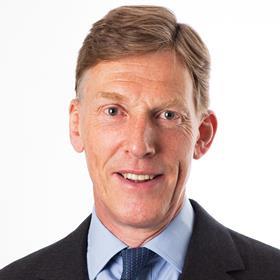Our shareholders always raise sustainability as a subject of importance. Our business is making a great effort to understand how we can play our part and do what we do better.

According to the World Green Building Council, the building and construction sectors are responsible for 39% of all carbon emissions, operational in-use emissions account for 28%, and carbon embodied in materials and the construction processes accounts for the remaining 11%.
Occupiers will demand much more from their offices, with a flight to quality for best-in-class amenities and smart technology to encourage wellbeing along with an increasing desire for truly sustainable buildings.
Helical will shortly launch a new guide, ‘Designing for Net Zero’, to aid our consultants on development projects through design and construction phases and then into use and occupation.
We will appoint a ‘Carbon champion’ as part of the design team to set the vision with us and incorporate a 10-step process to ensure full consideration is given to the carbon impact of our decisions, with the journey documented in a Carbon Implementation Plan. Carbon needs be on an equal footing with the usual driving factors of quality, cost and programme.
We want to work with forward-thinking, dynamic professionals to encourage debate and challenge the supply chain to provide innovative, low-carbon technology and products. We need to work closely with insurers to adopt new construction methodology and look at materials and products with a longer design life and which can be recycled or re-used.
I do not believe economic activity needs to be shut down to reduce carbon emissions
Technologies will inevitably change over time; some older buildings will be obsolete, but in the future, all should be flexible enough to adapt without having to be demolished and rebuilt like some of recent vintage.
As we strive towards net zero, the last resort is to look at carbon offsetting, which remains unregulated and somewhat unproven.
We do need to think about unintended consequences; during the recent cold spell I saw a picture of a helicopter, powered by aviation fuel, spraying de-icer, a petroleum-based product, on the blades of a frozen-up wind turbine. Had anyone worked out the impact of that activity?
Likewise, I do not believe that economic activity needs to be shut down to reduce carbon emissions. A global pandemic with major constraints on movement and output has seemingly cut emissions by only 8%. The answer does not lie in reducing activity as we need a thriving world economy to enable the investment and innovation to take on this challenge.
On behalf of Helical, I have signed up to the ‘Terra Carta – for Nature, People & Planet’ charter, written by HRH The Prince of Wales’s Sustainable Markets Initiative. Prince Charles, who has perhaps been 50 years ahead of many of us in tackling climate change, is seeking to gather “a global coalition of the willing who share the vision around the need to accelerate global progress towards a sustainable future”. I commend the Terra Carta to you all; it is written in plain English.
In a complex world we need to keep things as simple as we can.
Gerald Kaye is chief executive of Helical






























No comments yet